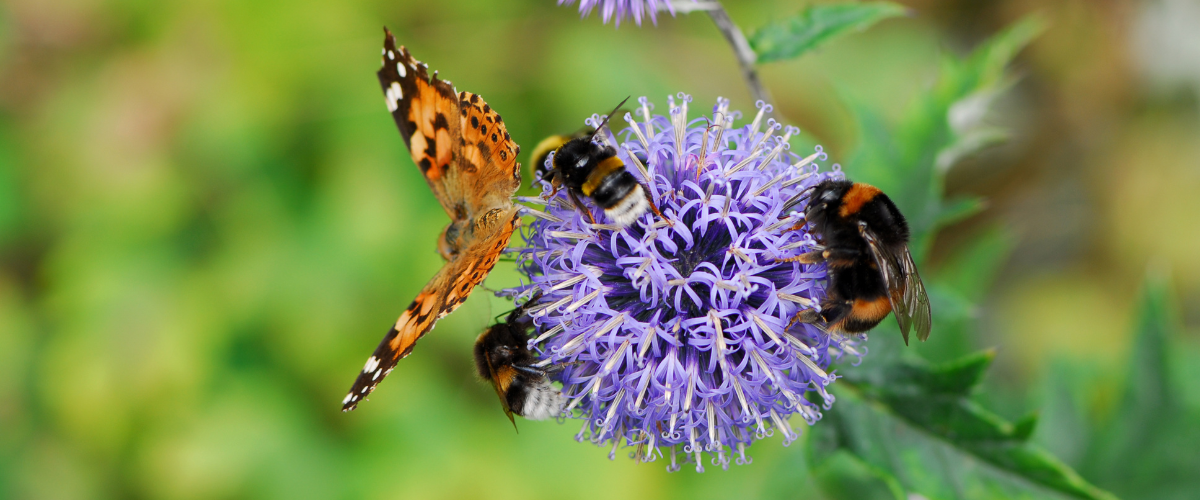
Good news for pollinators, people, and clean water – AB 363 passed and was signed into law by Governor Newsom in early October. This bill will evaluate and limit the use of neurotoxic neonicotinoid insecticides in non-agricultural settings. While these pesticides have recently been limited in agriculture, their use in lawns, gardens, and urban and suburban landscapes has been largely unregulated and even allowed to be applied at higher rates than on farms. This legislation will prevent these toxic chemicals from polluting the areas we live and the waterways we rely on.
Neonicotinoid pesticides, also known as neonics, are the most commonly used insecticides in the country and cause widespread environmental harm. Neonic pesticides are highly toxic to invertebrates, attacking the nervous system and causing severe harm and death in important insects like bees, butterflies, beetles, and pest-controlling bugs.
Neonics are sprayed onto crops and garden plants, drenched onto soil, or coated onto seeds to kill pests. Once absorbed they spread throughout the whole plant, contaminating even pollen, nectar, and nearby soil. Even months and years after these insecticides are applied, pollinators continue to be unwittingly poisoned by these toxic chemicals.
Neonic pesticides not only affect pollinators and ecosystems on land, but pollute waterways and groundwater too. Because neonics are highly soluble in water, they can be washed away by rain and carried in runoff far from where they are applied. It’s estimated that only 5% of neonic coatings on seeds are absorbed by the plant while 95% of the pesticide is washed into soil and groundwater. These toxic chemicals are transported down the watershed, ultimately ending up in our rivers, bays, wetlands, and beaches.
The EPA recently found that neonicotinoids would adversely affect over two thirds of the endangered and threatened species and over half of critical habitats it investigated, with severe effects jeopardizing survival and recovery in the wild of about 10% of those endangered species. This included many aquatic species like fish, amphibians, and beneficial invertebrates that are crucial to healthy, resilient ecosystems. There are also growing concerns about the effects of neonics on human health, including neurological toxicity.
While regulations help reduce the amount of pollution affecting our water and wildlife, we can all do our part at home. You can take our pesticide-free pledge to protect clean water and pollinators in your own yard, and learn more about how our Ocean Friendly Gardens program is supporting clean water with nature-based solutions to pollution while fostering biodiversity in our urban and suburban landscapes. Get involved with Ocean Friendly Gardens by volunteering with your local Surfrider chapter!
Read more about how pesticides impact clean water on Beachapedia
